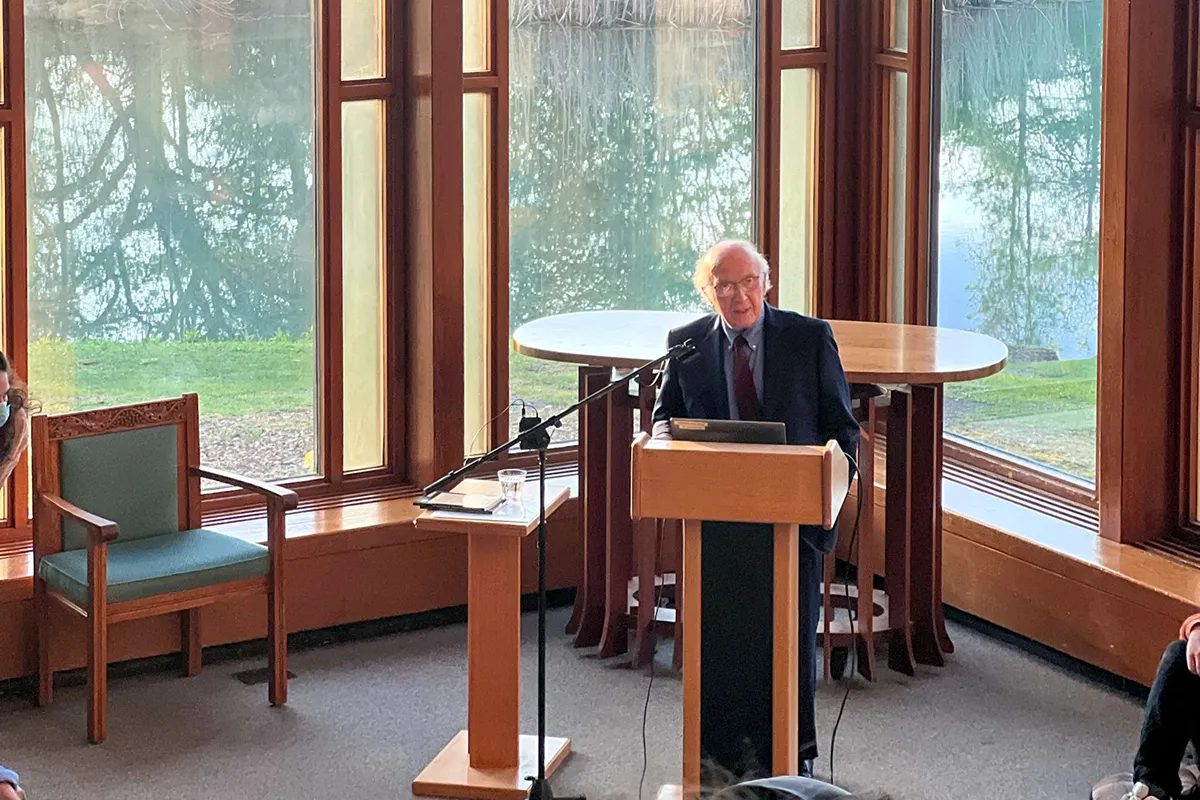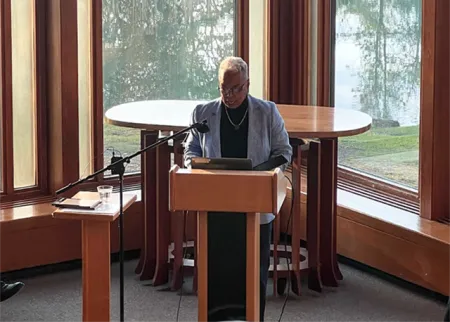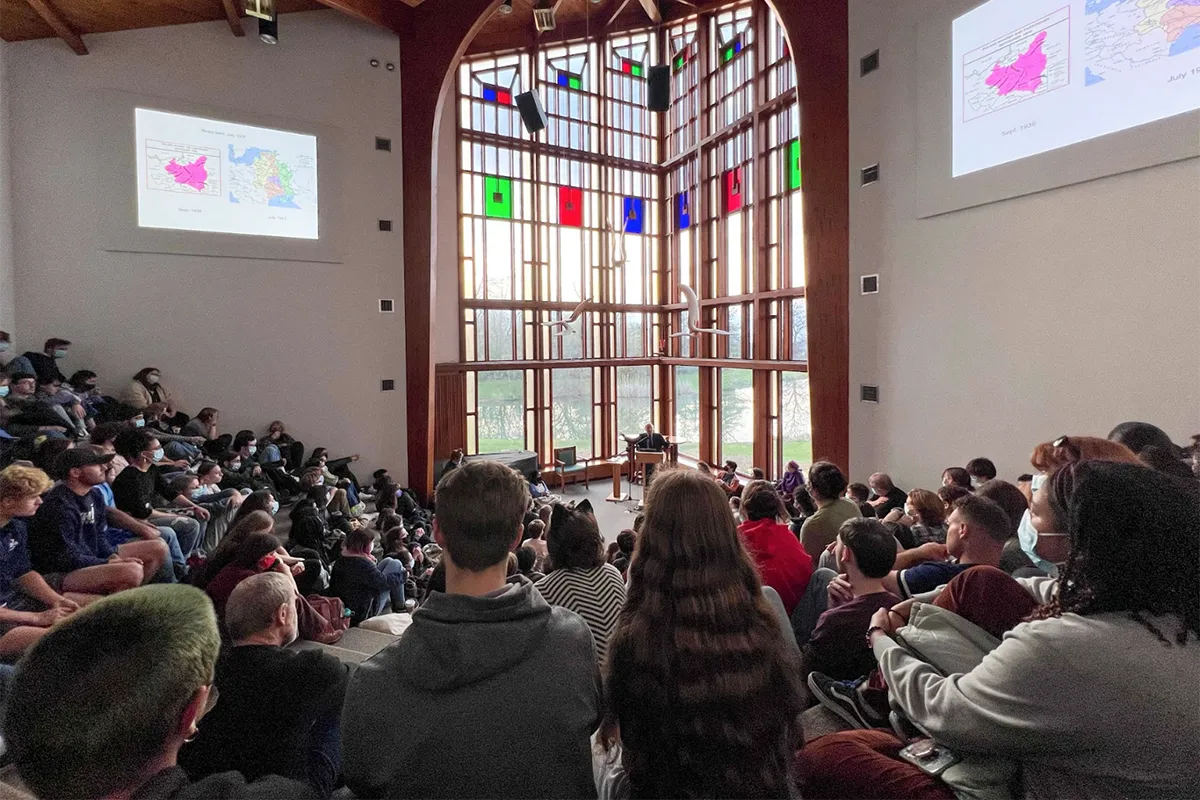Hoffmann, born in Poland in 1937, came to the United States with his mother and stepfather in 1949 and went on to study chemistry at Columbia and Harvard. Since 1965, he’s taught chemistry at Cornell University and has had a storied career, even earning the 1981 Nobel Prize in Chemistry. Now in his 80s, he shares his story with audiences around the region.
Living in Poland in 1941, Hoffmann was just four years old at the time of Germany’s invasion. His family was moved to a forced labor camp and lived there for over a year, where his father, who was eventually killed, worked as a civil engineer.
During his talk, Hoffmann noted the parallels he sees between the German invasion of Poland and the recent Russian invasion of Ukraine. He displayed two images of cities in strikingly similar rubble, one in Warsaw, Poland in 1945 and the other in Mariupol, Ukraine in 2022.
“I cannot see that picture [of Mariupol] without calling up memories of the war,” he said. “When will we ever learn? Our task is to overcome the abiding pessimism from seeing such pictures.”
For every story of someone surviving the Holocaust, there’s a savior in their story, Hoffmann said. For him and his family, it was Mykola and Maria Dyuk, a local couple that hid Hoffmann, his mother, and other relatives in the attic of their schoolhouse after they were able to escape the labor camp. They lived in that attic until 1944, with the Dyuks providing them food and shelter.


